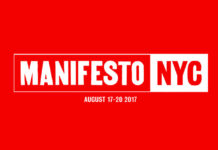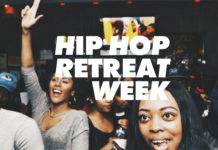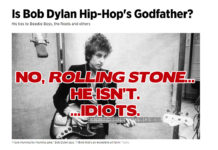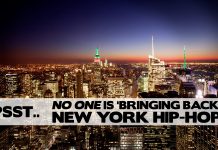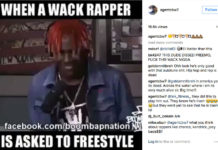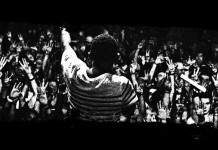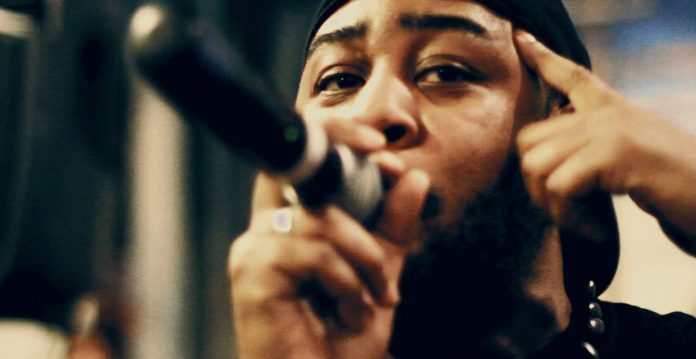For years, Mikal Amin has been an artist, teacher, youth counselor and at multiple times, a combination of all of these. The rapper and educator has traveled the country and the world, using hip-hop music and culture as a vehicle to inform, educate and entertain.
To find out more about his tireless work, our Clarence Fruster spoke in-depth with Amin about the path that led to his current role at the world-renowned Brooklyn Academy of Music, as well as the many ways he has shared his gifts with the world.
If you could control the first thing a person knew about you, what would it be?
If I could, the one thing I would want them to know is I am a deeply caring and intellectual human being. One that really wants to do well for the planet in the way that I can. That’s what I want people to know right off the bat, that I’m here for people. That’s my purpose, that’s my mission, that’s my goal.
Where are you from?
Originally I was born and raised in New Jersey. I grew up there, and then about 17 years ago after I graduated school, I moved to Brooklyn, and I haven’t left. It’s kept me here.
Where are your parents and people from? Ancestry?
I don’t know my true ancestry, which is something I want to get into this year as far as African ancestry via ancestry.com or something similar. But my family’s originally from the south. My mother was born and raised in North Carolina. My father was born in Georgia. As we know, many African-Americans went through the “Great Migration.” So, in the ’50s, my grandparents moved from Georgia to New Jersey, to raise my father in Newark. As for ancestry, I would love to know if I’m from Senegal or Ghana or Angola or Cote D’Ivoire or Native American.
What was your experience with school?
You know what’s funny? I always say this to people — I was a black nerd before it was fashionable, but I’m dating myself there (laughs). I always loved learning, I can’t say that I always loved school. My father was a teacher, so at an early age he was having us read. I had Encyclopedia Britannica in my house, so I was always asking questions and interested in things. I loved learning, but I think instinctively something about school never felt right with me, even though I loved English and I loved history and I loved to dialogue. But there was something confining about it.
I also grew up in a town that was predominately white so automatically there was kind of an ‘othering’ that I felt, even when I wasn’t aware of what that actually meant. They also could not understand someone that was dark like myself that was intelligent, that could think, that had these deep processes. People might think that that’s crazy now but you gotta understand, I grew up in the ’80s and the ’90s. Unfortunately a lot of the things that this generation is taking for granted as far as how they’re viewed — even though there’s a lot they have to deal with that I didn’t — back then, it was, “Wait a minute, how are you able to speak well? How are you able to think?” — That was a thing in the ’80s. People need to realize that and understand that.
So school wasn’t a comfortable space for me, but with my father being a teacher, I knew that education was the path forward for me in order to get things done. There’s not necessarily one right way, but education was instilled in me from a very young age. My mother had her master’s degree, so education was always a big thing in my family. It meant something. I understood its importance.
When did you begin exploring your creativity?
Before writing and rapping, I’d say was around 6 or 7. I have a younger sister. She’s really talented, more on the business side of things I’d say. We would make up imaginary places. One day we were a school, one day we were a fashion magazine, the next day we were a secret agent organization — creating characters and narratives and role playing. I remember being in the 6th grade and me and my friends had actually made up different ID cards to play different characters, just really creative and detailed. The first rap was probably when I was around 11 or 12 years old. That really stuck with me, largely because my older cousin from Newark made it seem so cool. I loved music, but I was listening to Paul Simon and Huey Lewis and the News. They were great, but they didn’t look like me. So when I saw “Self Destruction,” and KRS-One and A Tribe Called Quest and Big Daddy Kane, it was like, “Well hey! That’s ME!” and it all grew from there.
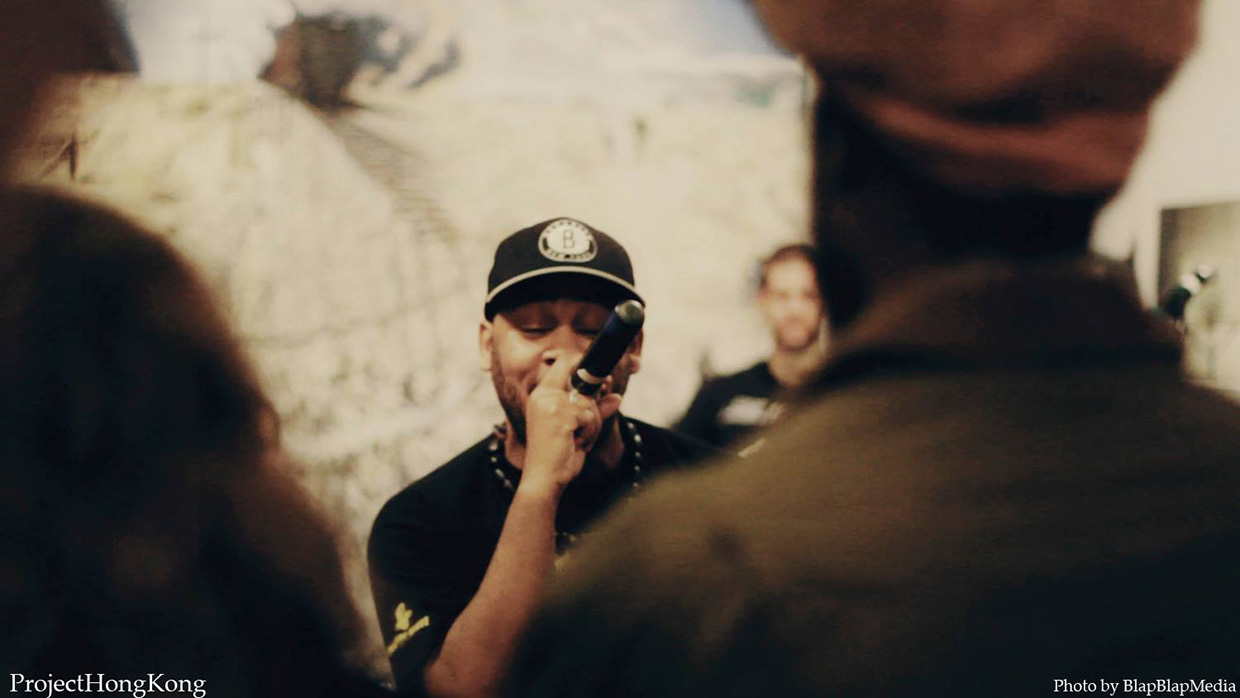 Let’s delve into your work and explore you and your life experience through that lens.
Let’s delve into your work and explore you and your life experience through that lens.
Please touch on milestones, Key individuals of influence, your work abroad & key learnings from each organization.
Urban Word NYC
Actually the first organization that I really worked for was Rosa Knopfeld — she goes by Rosa Bettina or Miss K — and Urban Art Beat. That was my first foray into art education work and it really helped me realize that the purpose I was feeling actually had a literal vocation. I was utilizing the arts for people to get a better understanding of the world around them through critical thinking but through an academic environment. It’s possible I never become an educator without that start.
In the process of art-making itself, you’re learning and in the process of developing art you’re also teaching. But this was something that was very formal and it spoke to me. We spoke about songs like “Self-Destruction,” KRS-One, “edutainment” — that was a big thing for me. Public Enemy, Chuck D., Poor Righteous Teachers, Brand Nubian — those were big things for me. Those artists were teaching you about history, politics and philosophy in the music and in the verses and you were still grooving to it! This is dope! I’m dancing but I’m hearing about George Washington Carver and mis-education of the Negro. “Well what was that?” it was real! It was embedded. It was in there.
What Urban Word did was, was contextualize critical thinking and youth-centered pedagogy for me, something that was implicit and innate in my practice already but that I didn’t have the “language” for. Where myself as the educator de-centers myself from being the store of knowledge. Because before that — I think this goes back to my instincts about school — in school my intelligence was never championed or regarded as high level. That went for all the students, not just myself. “You don’t know what you’re talking about. Let us tell you what you need to know, and if you can give it back to us written, then we know that you’re smart” And I learned early on there are a lot of people that can read the book but not understand what is written. Can you dismantle it and put it back together? Do you understand how you got to that point? How you can utilize it in systems and situations that don’t really live in that particular discipline. When I left, I was their longest tenured program director. I was there for about five years, eight in total, including three as a mentor.
Harlem Biennale
Harlem Biennale is a group and organization based in Harlem with a focus to preserve, maintain and advocate for the history and culture of the neighborhood. They came into play because they were helping us conduit a project called “Our Better Angels,” which was a partnership between Muriel Quanard, a producer, and a fine artist named Monty Laster who is Texas-born but has lived in France for around 30-plus years, most of his adult life. This project was my first foray into an international cultural exchange. I served as lead co-teacher and artistic director. The project lasted two years and resulted in seven New York City youth traveling to perform a series of works in Paris, France. This showed me what was possible, personally, artistically and professionally. It was the spark to my growth. I can’t thank Muriel enough for the opportunity to manifest this vision with her.
American Music Abroad
American Music Abroad is a U.S. State Department-sponsored cultural exchange program. As Cultural Ambassadors, myself and the band Nomadic Wax Collective were able to perform and conduct workshops in three countries discussing the power of hip hop and jazz while also teaching master class workshops. I am currently an alum of the program and routinely get opportunities to continue exchange work with them. It’s an amazing program and the recognition of my longstanding work as an educator and emcee is priceless.
Nomadic Wax
Ben Herson, Magee MCllavine, DJ Boo, Greg Schick, Amanda Macchia are family. Ben and Magee are the founders of this U.S.-based international label and multimedia company. In 2006 I met them and since 2007 I have been a part of this organization as a facilitator and artist. They truly introduced me to the global hip-hop culture that I really didn’t know existed. Nomadic Wax as a company is one of the most honorable, one of the most connected and underrated in the industry. They were working with hip-hop artists in places like Senegal, and Cuba long before it was really accepted or popular. They are the pioneers of the global hip-hop movement. I’m honored to be a part of the family.
BAM
The Brooklyn Academy of Music has been where I’m earning my graduate degree in non-profit management through trial by fire. I’ve experienced a tremendous amount of growth in the responsibility, scope, and curation that I’m tasked with as Educations Manager. This has been the most challenging and deepest learning curve as an administrator that I’ve ever had. Even though I’ve served as a director, nothing could have fully prepared me for the level of accountability and production that is required at BAM. I also get to work with longtime friend, Baba Israel as I produce BAM’s only spoken word/hip-hop mainstage show, BAM POETRY PRESENTS. I’m standing on the shoulders of my predecessor, a visionary and genius, Dr. Jon Foster. His guidance and mentorship even after he’s left has been deeply appreciated.
The Hired Gun
I came up with the name when I was being asked to serve a number of roles in the New York City underground at the turn of the millennium. Another way to describe a “hired gun” is a “mercenary,” but I liked the way The Hired Gun sounded. I’ve since returned to my given of Mikal Amin which means “of god, like god” and “trustworthy.” In the Quaran, M’ikal is the arch-angel charged with preparing Muhammad to meet Allah. He is a messenger, and an avenger… Accurate.
Fresh Roots Music
This is my company and imprint. All of my independent education work is through here as well as all the music I produce as “Hired Gun” or “Mikal Amin.” I founded it in 2008, and since it’s inception I’ve released seven projects, orchestrated several international tours and run hundreds of hip-hop arts-based workshops worldwide.
Cyphers for Justice
Cyphers for Justice apprentices inner-city youth of color as critical researchers through the use of hip-hop, spoken word, and critical digital literacy. I’ve been it’s Hip-Hop Facilitator since it’s inception. It is the brain trust of Dr. Jamila Lysicott and Dr. Limarys Caballo and is housed at Columbia University – Teachers College, IUME (Institute of Urban Minority Education). Jamila and I have been friends and colleagues since my time at Urban Word. She is deeply committed to her community and young people and is one of the most dynamic leaders that I’ve been honored to serve under. Limarys is a visionary and diligent in her own commitment to young people. These two women are the example and model of what it means to be educators and leaders in the community. The entire team myself, Joe Fierre (Media Arts Facilitator), Cheyenne Jones and Andre Torres (Spoken Word Facilitators), and Dr. Danielle Filipiak (YPAR Facilitator) are truly committed to advancing young people and helping them develop the tools needed to continue to advocate for themselves. It’s also through “Cyphers” that I work with incarcerated youth at Riker’s Island.
https://www.youtube.com/watch?v=pvrMf3P28Bc&feature=youtu.be
The Hip-Hop Re:Education Project
Re:Education is the conception of Farbeon. Myself, Arthur Yamamato and Rabbi Darkside are co-founders. It was an idea and vision when I was a part of it, but the actual building of infrastructure came about through Farbeon and his work during his graduate studies at NYU. Its goal is to provide a platform for under-served young adults, ages 18-24 in New York City, to develop a lens and understanding of hip-hop music and hip-hop culture as well as open up growth opportunities through art and education for them. It has also served as a cultural exchange hub giving young New Yorkers the opportunity to build real community with other youth from around the world by creating music collectively, through a series of exchange trips. Most notably, there has been an ongoing partnership with Olad Aden and Gangway Beatz in Berlin.
On thing to note: Farbeon created this organization but never really pursued 5013c non-profit status. A part of that is because we the non-profit industrial complex by design is not meant to create solutions. It’s meant to be a social welfare of sorts. You’re providing services that are valuable and meaningful but you’re ultimately not doing anything to change the system, to make it equitable or just. He had the foresight to avoid that and posed a deeper question — could the work be sustained through the community without having to be beholden to foundations and institutions. Once you go down that road it’s hard to get off it. There are pluses and minuses on both sides of it, but it’s about the integrity of what you want for the mission. I know there are challenges for him and also Urban Art Beat to find money, but the integrity of the work they’re doing can’t be touched because they can’t be bought. That’s the reality. If you work for a paycheck — if we’re being honest — there are times when you’re going to have to compromise. So Re:Education is very authentic in the work it does and the community it serves.
Say Word Entertainment
Say Word entertainment is sort of The Fresh Roots Music of all three of us. That’s where 3rd Party came from, it was an event production company. It was founded initially by myself Rabbi and Farbeon and further strengthened through the tireless work and vision of our former business manager and partner Arthur Yamamato. The “crew” also grew to include musician and engineer Andy Gerard, and our DJ, Brian “Watts” Watson. As we grew in our careers, it branched out to be Re:Education with an creative, artistic and academic component. I had to step away from the day to day of it, but the foundation of everything I do in New York on the creative side will always have roots with Say Word Entertainment.
What does 2017 have in store for you? What is your outlook on your future endeavors and plans?
I’m continuing to move into the cultural exchange area. One of the things I have on deck is hip-hop school, that’s taking place in Dortmund, Germany. I was recently on tour with Tah Phrum Da Bush and while I was there I did a lecture for the American Studies Department at the University of Dortmund, talking about the hip-hop renaissance and looking at Black Lives Matter and how hip-hop has once again taken it’s place as being a radical voice and a political soundtrack. So a lot of this work out there will get revealed int he next few months. I also will be heading back at the behest of the U.S. State Department with Nomadic Wax Collective for a week long tour in Saudi Arabia this April. The work never stops, and the vision never rests. I am looking to marry what I’m doing creatively with my work in the hip-hop world. I have a compilation album called “Where In the World is Gun”, a compilation of artists I’ve met while touring. I’ll be releasing part two in late 2017. I’m pushing my last release, #NiceGuysFinish. I’m going to have a couple things published. I did an essay with Words, Beats & Life. A lot of writing, a lot of performing and a lot of teaching in 2017.
I’m optimistic even in the face of the state of the country and the world. I build, stay, uplift and represent the young people in New York City and worldwide. As long as we see them, support and love them, we’re good. All I do is beat the case.
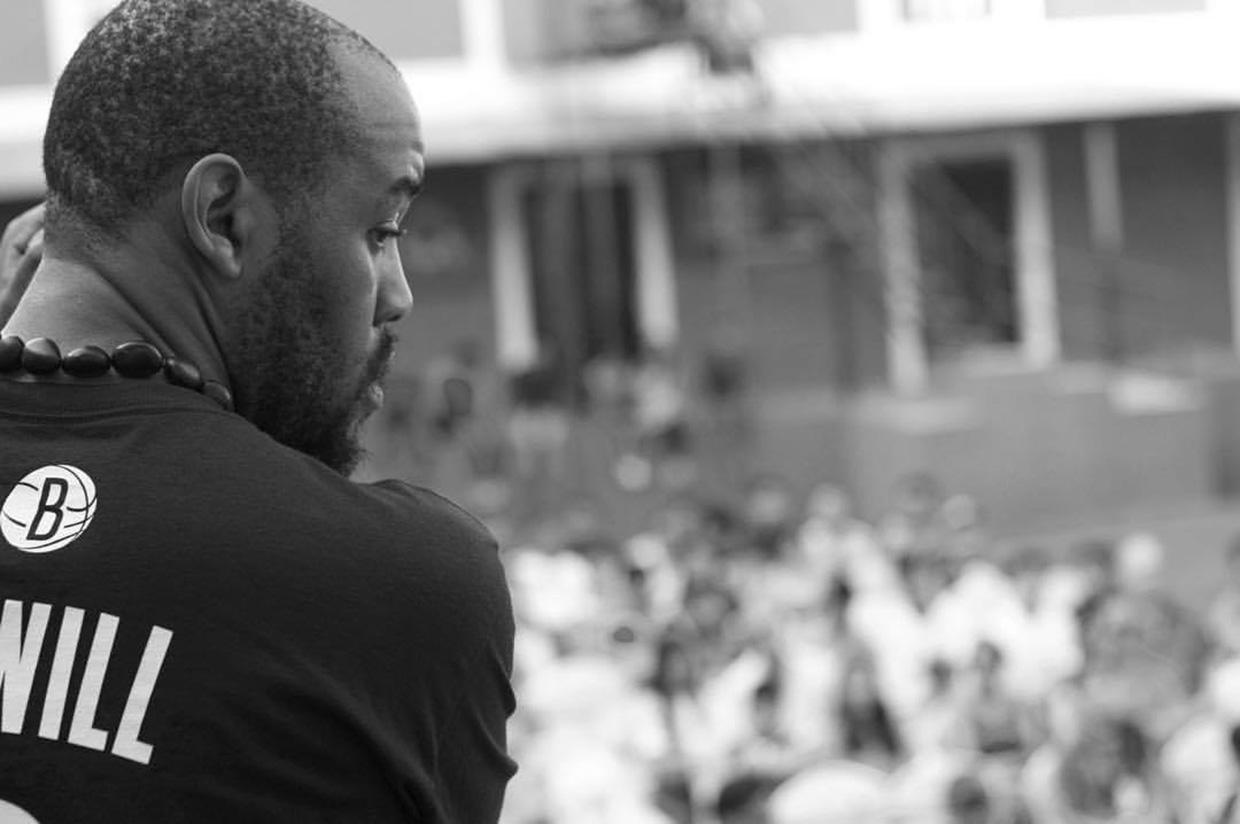
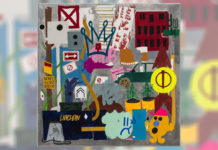
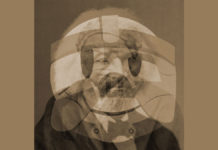
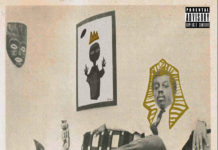
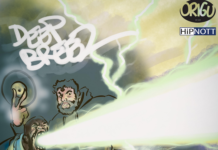
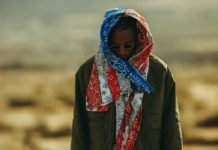
![The Underachievers – Crescendo [VIDEO]](https://www.birthplacemag.com/wp-content/uploads/2017/08/hqdefault-2-218x150.jpg)


![Fat Joe & Remy Ma ft. The-Dream – Heartbreak [VIDEO] Fat Joe Remy Ma The Dream - Heartbreak Video](https://www.birthplacemag.com/wp-content/uploads/2017/05/fat-joe-remy-ma-218x150.jpg)
![JSWISS featuring Chandanie – LML [VIDEO] JSWISS featuring Chandanie - LML [VIDEO]](https://www.birthplacemag.com/wp-content/uploads/2017/05/JSWISS-218x150.jpg)

![Akinyemi Ends Summer With “Summers” EP Release Show [9-17-17] Akinyemi 'Summers' EP release show at Brooklyn Bazaar](https://www.birthplacemag.com/wp-content/uploads/2017/09/summers-featured-218x150.jpg)
![4th Annual NYC VS EVERYBODY Yacht Party [9/16/17] #VSYacht 4th annual NYC VS Everybody Yacht Party#VSYacht](https://www.birthplacemag.com/wp-content/uploads/2017/09/vsyacht-218x150.jpg)
